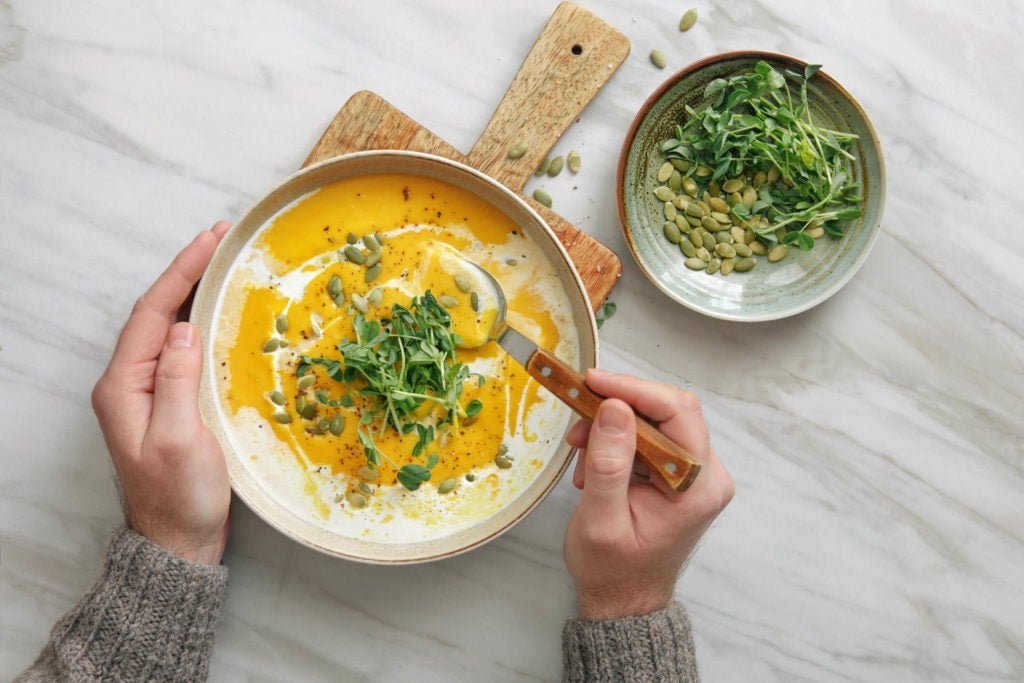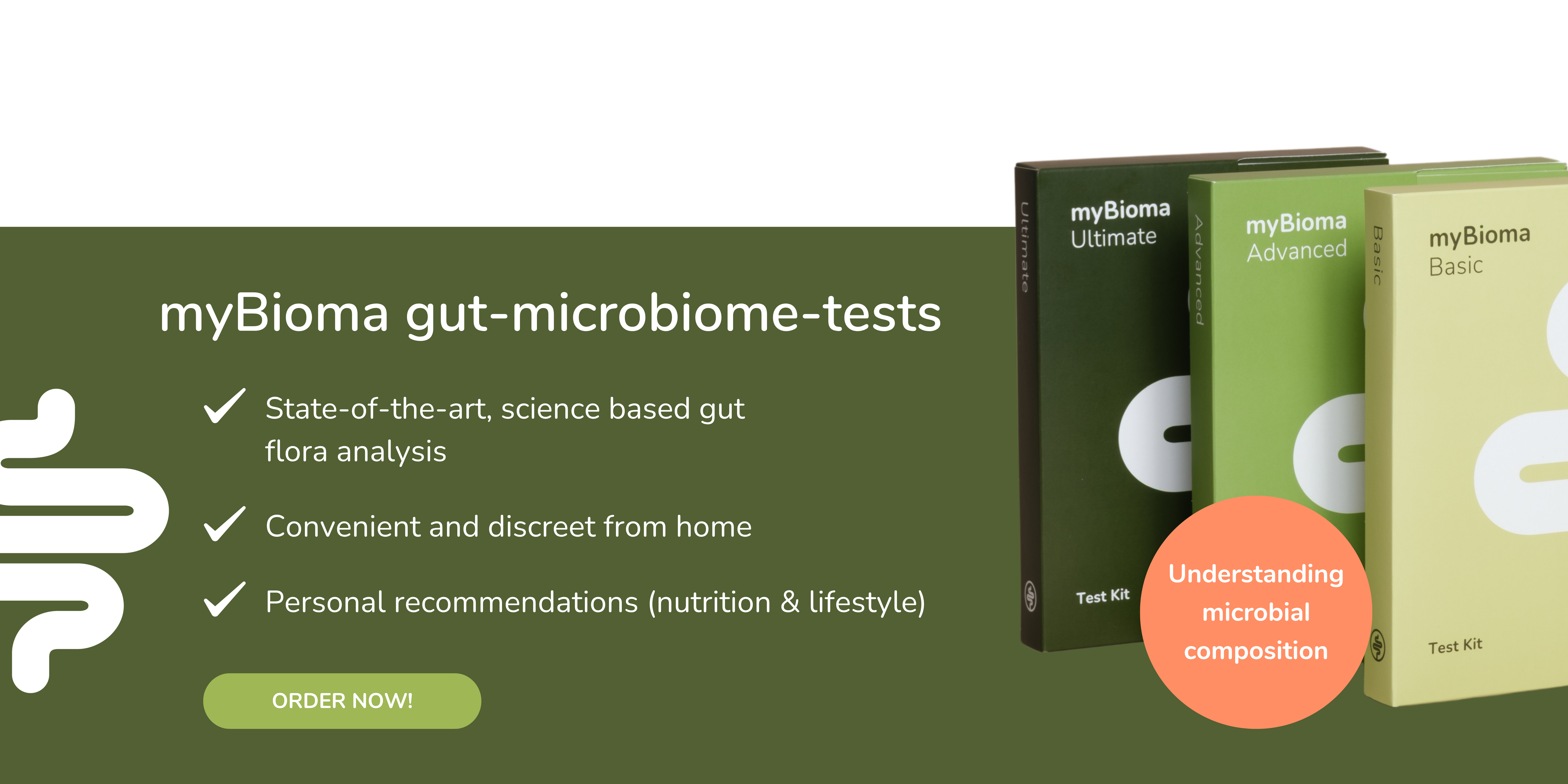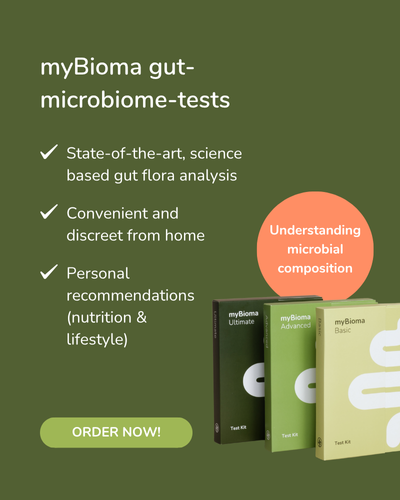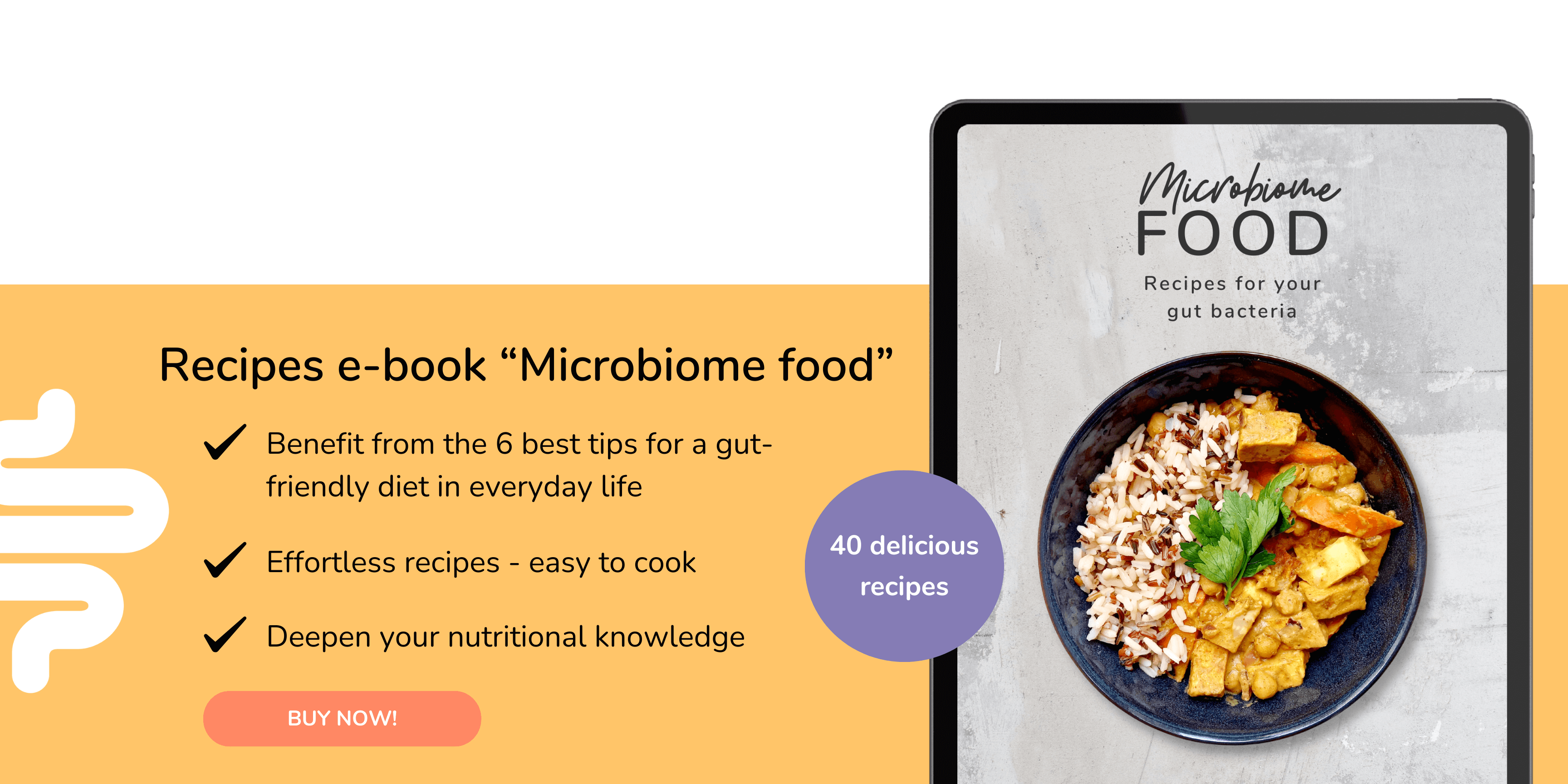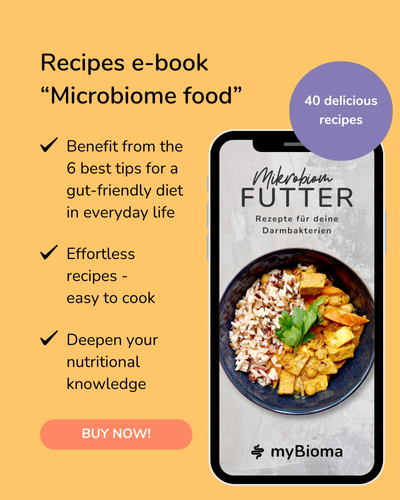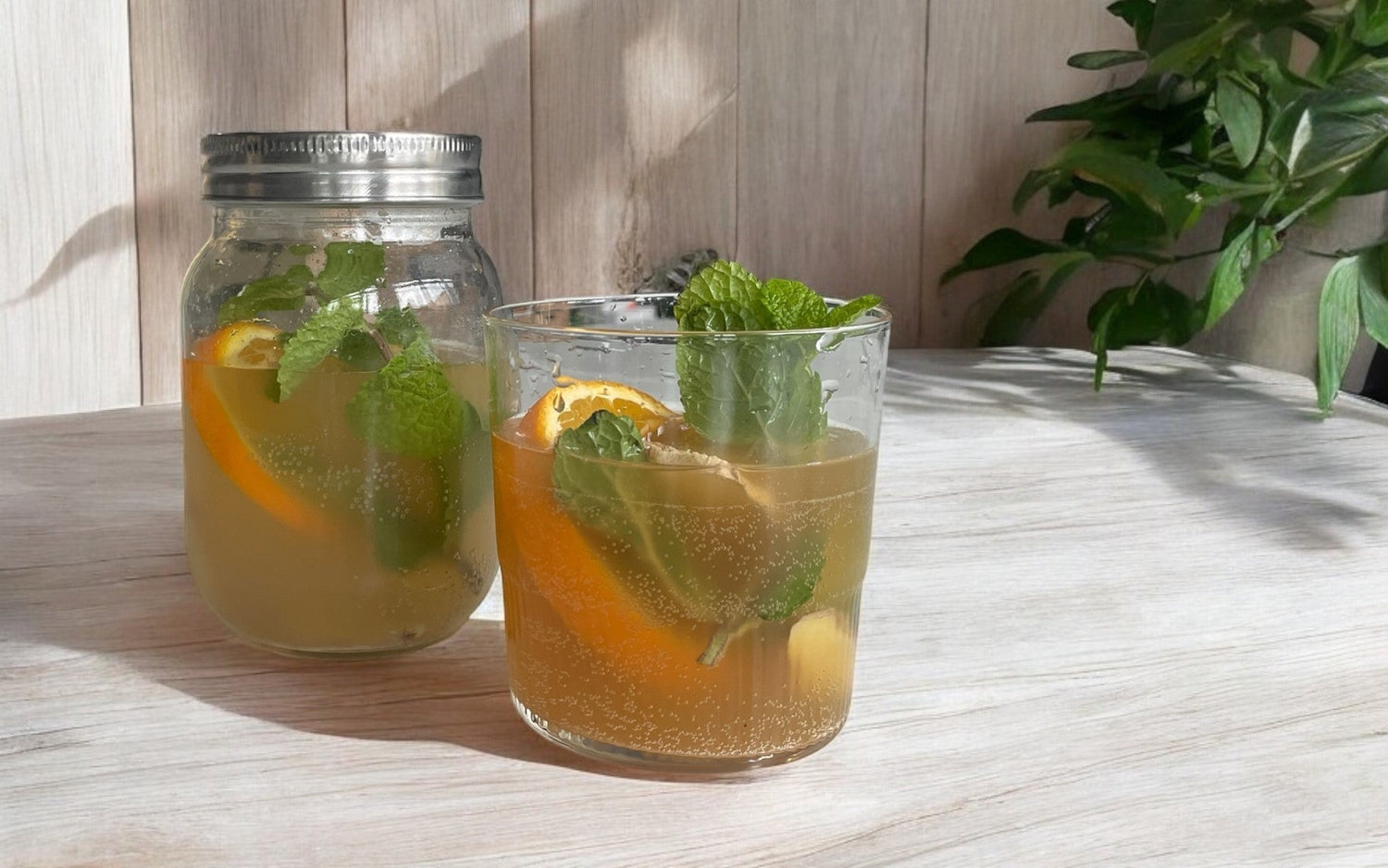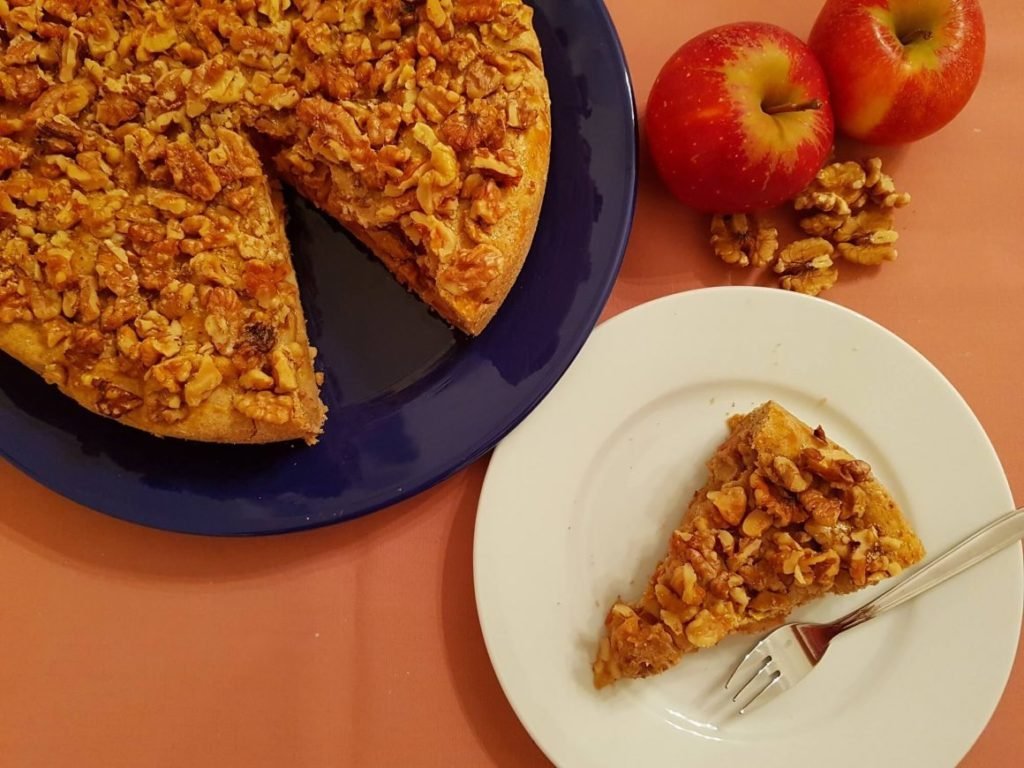A delicious and simple microbiome recipe for your good gut bacteria: Carrot turmeric soup with spinach leaves and pumpkin seeds.
Your gut microbiome plays a fundamental role in your health and well-being. It is connected to almost every organ and system in your body. An imbalance in your bacteria can not only cause digestive problems such as diarrhoea, constipation, flatulence or a bloated belly, but can affect your overall health.
With every food you eat, you are not only nourishing your body, you are also nourishing the trillions of microorganisms in your gut. Nothing is more important for a healthy microbiome than the right nutrition. With the right foods, you can balance your microbiome and help you achieve better health and wellbeing. Today we have another delicious and simple microbiome recipe that your gut bacteria will love.
Your diet can influence your gut microbiome in a positive or negative way. Regular analysis of your gut microbiome can give you information about the composition of your microbiome and help you monitor your overall health.
Carrot-turmeric soup with spinach leaves and pumpkin seeds
Ingredients
-
425 g carrots
-
100 g parsnips
-
1/2 onion
-
1/4 pc ginger
-
1/2 l vegetable stock
-
Garden herbs
-
1 tbsp olive oil
-
1/2 tbsp turmeric
-
Some pepper
-
1/2 clove garlic
-
150 g leaf spinach
-
1 tbsp coconut yoghurt
-
2 tbsp pumpkin seeds

Did you know that the greens of carrots are also edible and very healthy?
Instructions
Peel the carrots and parsnips and cut into pieces. Peel and finely dice the onion. Grate the ginger. Prepare 1 litre of vegetable stock.
Did you know that you can also eat the green part of the carrots? Unfortunately, the green is often removed before we buy the carrots. But the green leaves are not only healthy, they also contain many vitamins and other nutrients. You can use them in a similar way to parsley, chopping them up and adding them to your soup or salad. They also make a great ingredient for a green smoothie.
Heat olive oil in a pot and sauté onion and grated ginger briefly until translucent. Add the carrot and parsnip pieces and sauté briefly.
Stir the turmeric into the vegetable soup. Pour vegetable broth over the roasted vegetables and simmer for approx. 25 – 30 minutes – season with salt and white pepper. Then purée the soup.
Peel the garlic and slice finely. Blanch the spinach leaves briefly with the garlic slices in the remaining vegetable soup. Instead of spinach, you can also sprinkle parsley or carrot greens over your soup.
Serve and refine with a spoonful of coconut yoghurt and pumpkin seeds!
Of course, as always, we have made sure that all ingredients have a benefit for your (gut) health. So let’s get to the benefits.
The benefits of the ingredients for your (gut) health
Carrots
Carrots contain a lot of fibre and are a great source of vitamin A and β-cryptoxanthin, which supports intracellular communication.

Turmeric is a real superfood and has antioxidant and anti-inflammatory effects.
Turmeric
The ingredient “curcumin” has antioxidant and anti-inflammatory effects. Turmeric stimulates the production of gastric juice and bile acids and thus supports digestion. (1,2)
Black pepper
Together with black pepper, curcumin is absorbed 2000% better in the gut. (3)
Olive oil
The omega-3 fatty acids contained in olive oil promote positive gut bacteria. (4)
Pumpkin seeds
Source of magnesium, which counteracts the formation of oxalic acid stones. Pumpkin seeds also contain a lot of tryptophan, an essential amino acid that can be converted into serotonin (=neurotransmitter). Tryptophan can help reduce repressive moods, anxiety and stress and increase performance. (5-7)

Coconut yoghurt is a tasty alternative to conventional cow’s milk yoghurt.
Coconut yoghurt
Probiotic food, contains different strains of bacteria that support the regeneration of the gut. (8)
Spinach
Source of vitamin K and folic acid.
Onion
Prebiotic food, supports the good gut bacteria, such as Bacteroidetes in their growth. (9)
Make the recipe and link us!
If you make the recipe and post it on social media, we’d love to have you link @mybioma and use the hashtag #mybiomakocht.
So have fun recreating the recipe and feeding your gut bacteria!
References
- Zhang S, et al. Curcumin attenuates atherosclerosis in apolipoprotein-E knockout mice by inhibiting Toll-like receptor 4 expression. J. Agric. Food Chem. 66:449–456 (2018).
- Aggarwal BB, Shishodia S, Takada Y, et al. Curcumin suppresses the paclitaxel-induced nuclear factor-kappaB pathway in breast cancer cells and inhibits lung metastasis of human breast cancer in nude mice. Clin Cancer Res. 2005;11(20):7490-8.
- Shoba G, Joy D, Joseph T, Majeed M, Rajendran R, Srinivas PS. Influence of piperine on the pharmacokinetics of curcumin in animals and human volunteers. Planta Med. 1998;64(4):353-6.
- Menni C, Omega-3 fatty acids correlate with gut microbiome diversity and production of N-carbamylglutamate in middle aged and elderly women Sci Rep. 7: 11079 (2017).
- Waclawiková B, El Aidy S, Role of Microbiota and Tryptophan Metabolites in the Remote Effect of Intestinal Inflammation on Brain and Depression. Pharmaceuticals (Basel). 11(3): 63 (2018).
- O’Mahony SM, et al. Serotonin, tryptophan metabolism and the brain-gut-microbiome axis. Behav Brain Res. 277:32-48 (2015).
- Lindseth G, et al. The Effects of Dietary Tryptophan on Affective Disorders. Arch Psychiatr Nurs. 29(2):102–107 (2015).
- Tillisch K, et al. Consumption of Fermented Milk Product With Probiotic Modulates Brain Activity. Gastroenterology. 144(7):10.1053/j.gastro.2013.02.043 (2013).
- Lindseth G, et al. The Effects of Dietary Tryptophan on Affective Disorders. Arch Psychiatr Nurs. 29(2):102–107 (2015)


